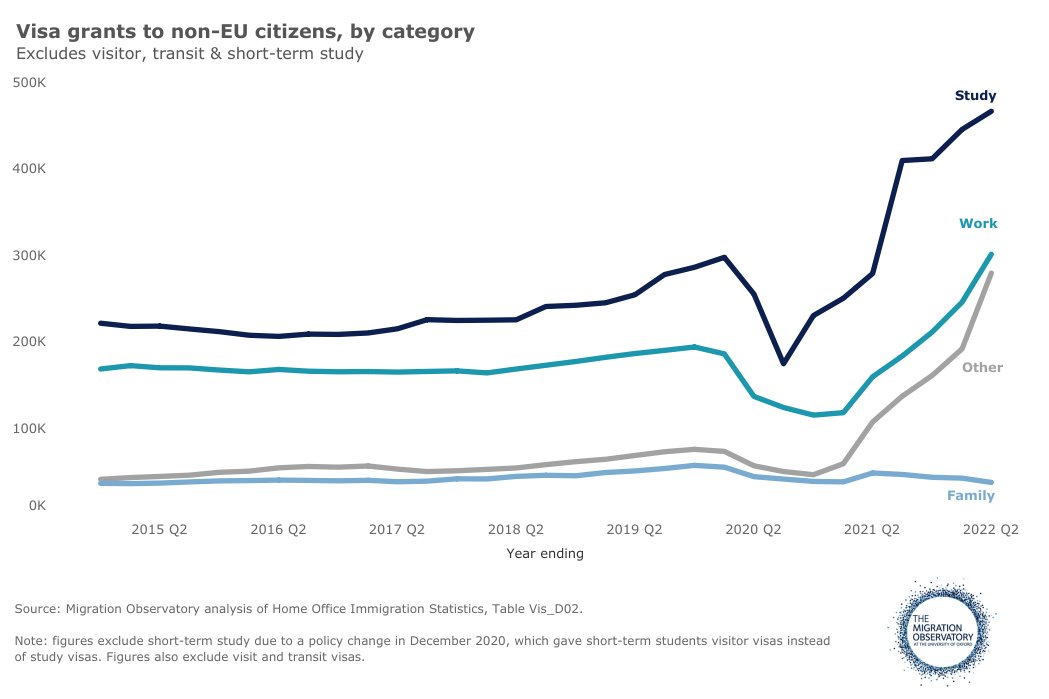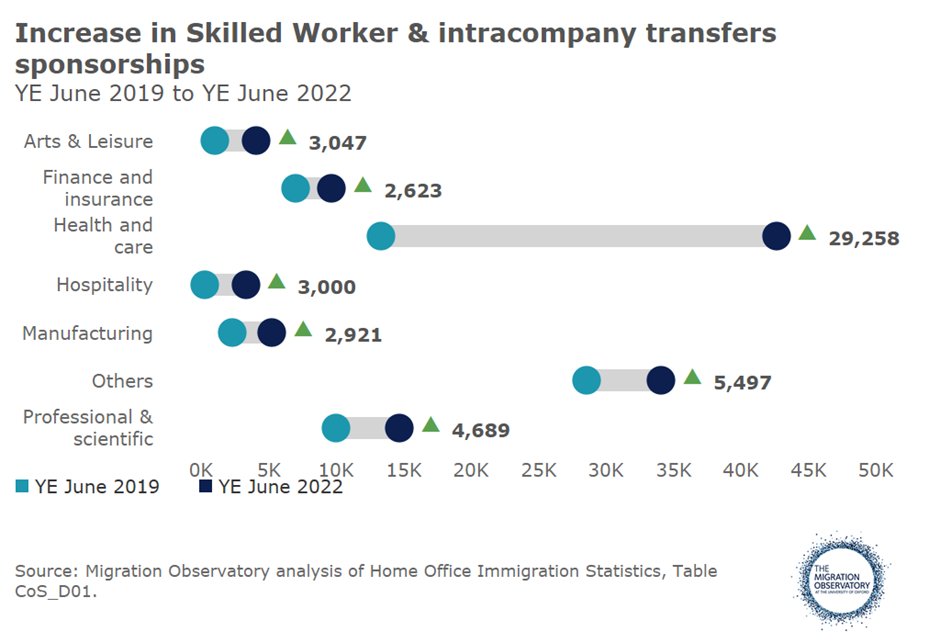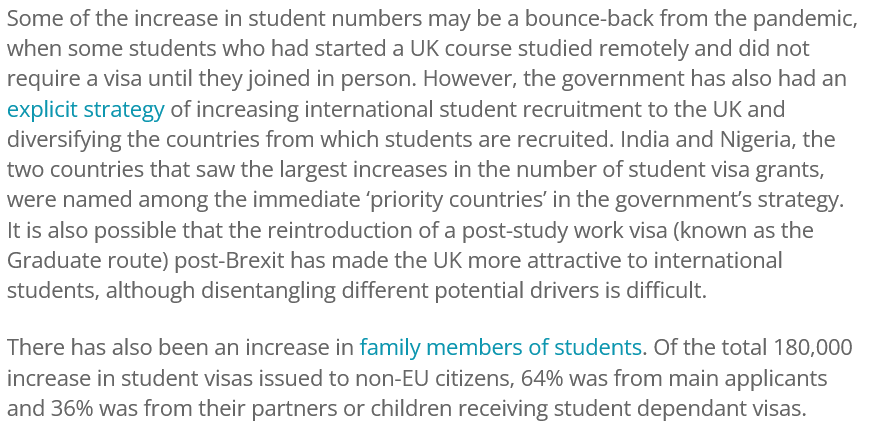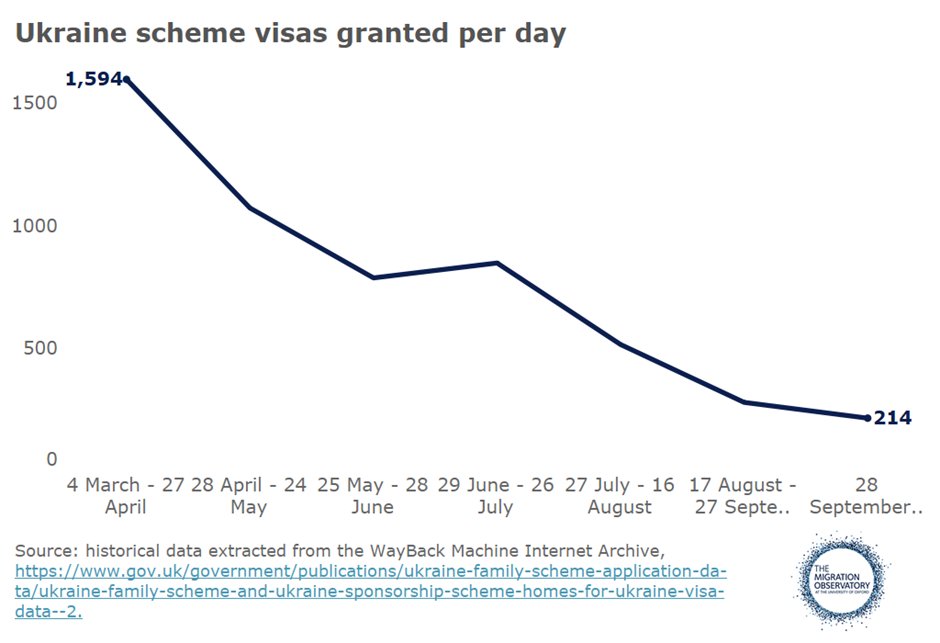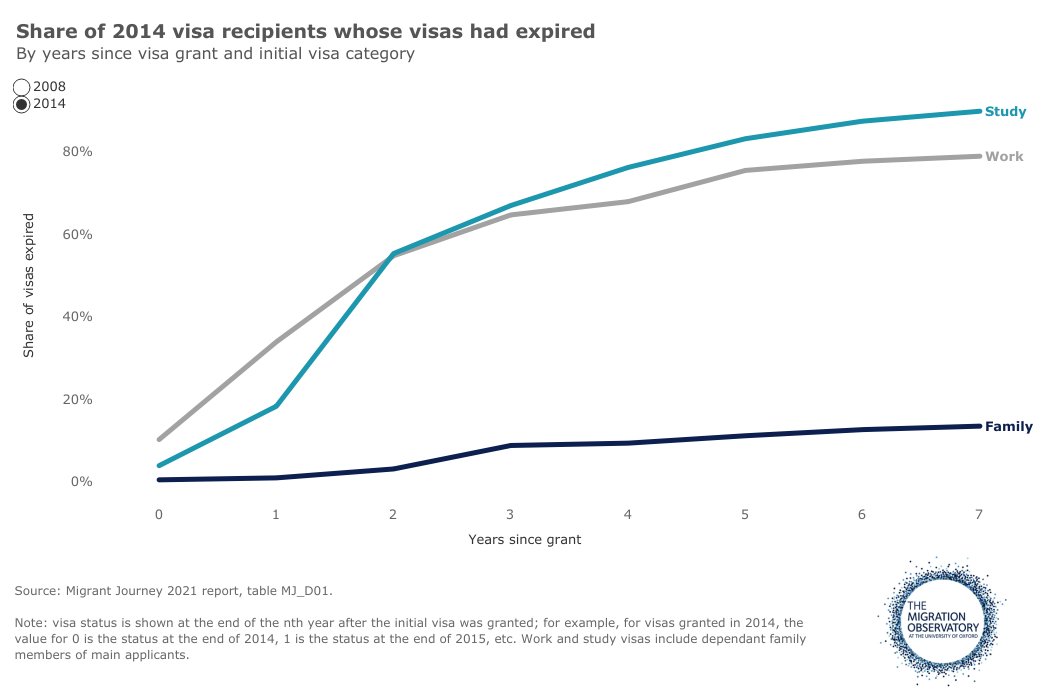
MigrationObservatory@MigObs
Nov 21, 2022
11 tweets
The post-Brexit immigration system was widely expected to lead to lower migration, so why has the number of visa grants gone up?
A thread based on our latest briefing note, out today 1/n
migrationobservatory.ox.ac.uk/resources/comm
2/ EU net migration *has* declined sharply in recent years. All else equal, this would have meant lower UK immigration overall. But all else was not equal. Various factors have combined to create unusually high numbers of visas granted to non-EU citizens. What has driven this?
3/ There's no single explanation. Increases have taken place across three main categories: work, study and "other" which includes the Ukraine schemes and Hong Kong BNOs
4/ People often assume that higher non-EU visa grants result from a more liberal post-Brexit work visa policy. In fact, the two 'bespoke humanitarian routes' - Ukraine and Hong Kong BNO - are the main contributor to the increase in visa grants since 2019.
5/Work visa grants are also up though much of this has nothing to do with post-Brexit policy changes. Many work visa recipients are doctors and nurses who were already eligible under the old immigration system. Huge demand in the NHS is a key driver of work visa patterns now.
6/ Where changes in work visa policy to replace free movement will have had more of an impact on numbers is seasonal workers and - more recently - the extension of skilled work visas to care workers.
7/ It's difficult to disentangle the various possible explanations for student visa grants
8/ So the upshot is that non-EU visa grants have been higher than most analysis would have expected a year or so ago. Forecasting future numbers is very hard but at least some of the drivers are expected to be relatively short term, such as the Ukraine schemes.
9/ The recent increase in work and study visas in particular have important implications for net migration - figures on which are due out from @Office for National Statistics (ONS) later this week. In the past, large majority work and study visa holders have not remained in the UK permanently
10/ Higher immigration thus leads to higher emigration. But the emigration takes 2-3 years to materialise. So net migration figures over the next couple should in theory look a bit odd - i.e. higher than you'd expect if the same level of *immigration* was sustained indefinitely.
11/ Summary: we are now in an unusual period and the @HomeOffice and @Office for National Statistics (ONS) stats over the coming months should not be assumed to be a post-Brexit 'new normal'. They will be heavily affected by short-term factors.
For more detail, see our briefing note
migrationobservatory.ox.ac.uk/resources/comm

MigrationObservatory
@MigObs
The Migration Observatory at the University of Oxford provides independent, authoritative, evidence-based analysis on UK migration. Based at @COMPAS_oxford
Missing some tweets in this thread? Or failed to load images or videos? You can try to .

